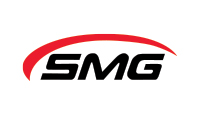February 4, 2015
Knock, Knock! Who’s There? Your Local, State or Federal Regulator!!
POSTED BY
Scott R. SmithTAGGED
SHARE
If there was ever a time to be in the anticipatory mode, it’s now. Being prepared for a regulatory agency inspection of your facility and knowing how to respond to the inspector is imperative. Here are my tips on what to do or say. Use these as a general guide and modify them to your circumstances.
- If you don’t know the inspector, request their credentials and ask the reason for the inspection. If criminal inspectors are part of the group, contact your superior immediately. Your attorney should be made aware of the inspection as soon as possible.
- Determine what the inspector wants to see. Which areas of the facility will the inspection focus upon? What documents does the inspector want to see and will he take samples? Do not allow the inspector access to parts of the facility that are not part of the inspection.
- ALWAYS Accompany the inspector. Preferably, two people should be with the inspector at all times. One facility employee that is familiar with the facility that will serve as a “guide.” The other will to serve as a witness to the conversations and note taker.
- Try to answer questions with a “yes” or “no” or “I’ll find out”. Do not guess at an answer. Letting an inspector know that you will find the answer later is not a bad thing.
- If the inspector is going to take pictures or video of your facility you need to direct that activity so that trade secrets or confidential business information can be protected. Photograph and video the same things that the inspector does. This will ensure that you have a complete and well documented record of the inspection.
- Request a closing conference when the inspection is completed. Ask if any violations were observed. DO NOT ADMIT TO ANY VIOLATIONS. Maintain a copy of any of your records that the inspectors take with them. Do not make available attorney client privileged documents or business confidential records to the inspector.
- Prepare a memo of the inspection of the visit as soon as the inspector(s) leave. Contact supervisors and counsel if necessary.
- If violations were revealed during the inspection, verify them and correct them as soon as possible.
- Develop a good relationship with your inspector. You will probably see them again.
Here’s a checklist of what your facility should have on hand and make accessible to employees who may come in contact with an inspector:
- A written protocol on how to respond to an inspection;
- Identify within your protocol your agency point of contact. Make sure applicable employees know the point of contact and how to reach that person;
- Always maintain complete copies of all its required permits, regulatory submissions and forms. Perform periodic internal checks to make sure these documents are organized and accessible.
- Ensure privileged and confidential documents are separated from normal facility documents.
Reviewing your processes, procedures and files at least on an annual basis is very important. Throw away papers, notes, draft reports and materials that are not relevant. That said, consider internal assessments conducted by internal or external people of specific program areas on a regular basis. Note that these are merely guidelines, but they can be very helpful.
